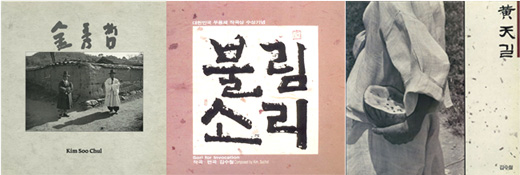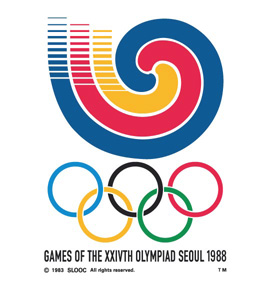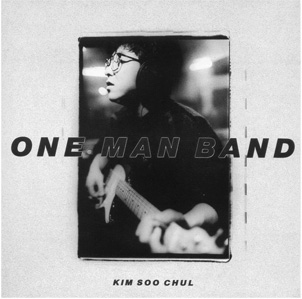Kim, SooChul
#밴드리더 #음악프로듀서 #방송인 #영화배우 #록음악




Kim Soo Chul debuted in a college band [Little Giant] in late 1970s. With passionate sounds and
his personality on stage, he grabbed the attention of the audience despite his small figure.
In the 80s, his popularity peaked as he released many hit songs as a solo artist.
Kim attempted to create music in various genres and made contributions to various film scores, traditional Korean music,
TV dramas, as well as numerous international evetns including Tripitaka Koreana events, 1986 Asian Games, 1988 Olympic Games,
2002 Soccer World Cup Opening Ceremony. Over the course of history, he managed to create his own musical world.
Kim attempted to create music in various genres and made contributions to various film scores, traditional Korean music,
TV dramas, as well as numerous international evetns including Tripitaka Koreana events, 1986 Asian Games, 1988 Olympic Games,
2002 Soccer World Cup Opening Ceremony. Over the course of history, he managed to create his own musical world.



Kim Soo Chul’s band was composed of young men who were known for their musical performance in their
respective schools. Kim Soo Chul was the lead guitar and vocal, with Kim Geun-seong at the keyboards,
Jeong Won-mo playing the base guitar, and Choi Su-il hitting the drums. They practiced for two months in the
winter, subsisting only on two boxes of ramen. After their sessions, Kim Soo Chul’s musical world advances greatly.
After his band “Little Giant” won the college competition in 1978, with the song “Rainbow of Seven Colors,”
Kim’s performance and musical skills were made known to the public.
Rock group “Little Giant” was loved for its two albums released in 1979 and 1981, by Korean rock fans and youths.
Little Giant played hard rock and rock music primarily, but also experimented with folk ballads, soul jazz, jazz rock,
hard rock, ballads, and music of many other genres. In particular, the first Korean traditional pop
song created by Kim in 1980,”Byeolli,” is contained in Little Giant’s second album.
With Kim’s songs being selected in Seoul International Music Festival from 1979 to 1981, three consecutive times,
Kim Soo Chul began showing his abilities not only as a performer and a singer, but also as a composer.
Kim Soo Chul goes solo in 1983, releasing his first album in that year. Many songs including “A Flower that Never Bloomed,”
“Byeolli,” “Really You,” “Tomorrow,” “I Will Never Love Again,” and all the other songs in the album were bit hits,
which led to the popularity of his second album and songs like “Why Do You Not Know,” “Youthful You,” and “I Will Go As Well,” putting him on the top of the mountain. At this time, Kim won numerous TV station music awards from 1984 to 1986.
In 1983, turn of events led him to appear in the movie “Whale Hunting” as the character Byeongtae,
which won him the Rising Star Award in the Paeksang Arts Awards, putting him on the top of the charts in his fame.
The disbanding of Little Giant, and the opposition of his father made Kim Soo Chul to initially take up graduate studies in administration in Konkuk University. He released his first solo album as a “goodbye album,” which became a hit, and made
the audience call out to his musical talents and come back to that world. Kim’s father, who died in 1984,
wanted him to “take up studying” as a profession, which Kim interpreted in his own way, taking up
the study of music, in order to develop traditional Korean music even further
In his fourth album released in 1986, Kim Soo Chul began attempting to create traditional Korean pop songs again;
he composed five variations of the piece “Please Forget,” and four variations of “The Time Goes,” showing his capability to break free from melody. At this time, Kim composed many pieces for films and TV dramas, as well as for theater plays
which allowed him to create music in different genres. “Whale Hunting I, II”, “Jung-Kwang’s Nonsense,”
“TV Drama Music,” and “Nodaji” are only some examples of Kim’s attempts to moernize Korean music
Through such endeavors, Kim came to compose music for the eve event of the 1986 Asian Games.
Through the finale piece in that event, Kim Soo Chul introduced the harmony of rock and traditional Korean music previsouly unseen, which led him to begin the instrumental pieces titled “Guitar Sanjo,” a beginning of a line of players taking up the genre.
Kim Soo Chul displayed his musical abilities in modernizing music and Korean sounds,
which made him into a composer-musician from a popular rocker.
The audience began to newly evaluate and recognize Kim as a musician, composer, and film music expert
in various genres after understanding his musical world and efforts. Kim continued to create film music,
as well as dance music, which were the background music for “The Spiritual World,” which won
the Grand Prize in the 9th Korean Dance Festival in 1987.
In 1987, Kim Soo Chul’s first traditional Korean album was released, which only sold several hundred pieces.
This made the record company stop its sales, and Kim had to dump unsold albums with debt piled on his account.
Other traditional Korean albums such as “Hwangcheongil” and “Bullimsori” all failed with the general public,
despite its favorable critical reception.

With the success of his music for the eve event of the 1986 Asian Games on his back Kim Soo Chul
becomes the only popular musician to produce and compose the music for the eve event of the 1988 Seoul Olympic Games.
Kim harmonized the traditional Korean sounds and cutting-edge synthesizers to highlight special effects including fireworks
to decorate the finale of the event. Kim’s interest in the traditional sounds and the modernization of traditional Korean music
continued into his performances such as Guitar Sanjo. His Guitar Sanjo performances were introduced to the public
in earnest through collaboration with samulnori (Kim Deok-soo Group) elements
in the Chung Ang Traditinal Orchestra’s regular concerts.
Kim’s activity as a singer also continued, with the release of his fifth album in 1987,
which talked about normal everyday life, and his sixth album in 1988,
commemorating the 12th year of his singing career.

In 1989, his seventh album released as Korea’s first “one man band album.” The term refers to artists who play
all of his instruments by himself, without using aid from computers or other physical euipment. In this album,
Kim Soo Chul not only wrote the melody and the lyrics, but also played all the instruments including the drums, keyboards, guitar,
and others, showing the world the true meaning of one man band.
It is his milestone album that reveals his conviction and talent for music. The song “Come to Your Senses” was a big hit in this album.

With a sudden hit of “Come to Your Senses” in his 1989 album “One Man Band,” Kim Soo Chul appeared in front of
his fans via television more often. “Flying Superboard,” an animated TV show that aired on KBS TV was adored by the viewers; the popularity of the show was aided by its theme song that Kim composed. “Chi-ki-chi-ki-cha-ka-cha-ka” became a nationwide hit song, an unuaual feat for a theme song for an animated TV show
For Kim, 1991 was a year filled with activities such as pop album works, film music, TV drama scores, and
Guitar Sanjo performances. He won the film music award in the 11th Korean Film Critic Association Awards
(Film “Black Republic”). This was a time in which famous film directors asked Kim to write music for their works,
elevating him to be one of the best in the field. Kim did not neglect his Guitar Sanjo performances: in 1991, he performed Guitar Sanjo in meaningful events such as Sports and Cultural Exchange Event between North and South Korea,
as well as World Korean Social Event.
During this period, he came to be considred as the best in music for film, drama, dance, play, and events; in the film circles,
professionals began to say that Kim’s work is necessary to make a film more complete. This shows that Kim Soo Chul’s work on film music, the work for Korean sound came to mature in the period. Kim’s film music containing Korean sounds not only gained musical recognition, but also cost the most, higher than anyone else who wrote music for Korean films.
1993 was the “Year of Seopyeonje,” not only in the film industry, but also in culture and arts circle and the general public.
This is a movie that gathered the most audience in the history of Korean film, bringing about a new direction
in Korean film that was suppressed by Hollywood blockbusters. The fact that the movie was about pansori,
a “Korean sound” that even the contemporary Koreans find unfamiliar, made the success of the film all the more meaningful.
The surprising success of “Seopyeonje,” a music film, can be said to be the success of Kim Soo Chul,
who made the music for the piece. In particular, the original sound track for the movie was released,
a first for a Korean film. This soundtrack album is another “Seopyeonje,” created in the form of a music album.
The album sold more than 700,000 copies, a record for Korean soundtrack album and a traditional Korean music album.
The success of the film and the music contained in it brought about a “Seopyeonje Syndrome” in Korea, making
its people more interested in things and sounds that are Korean, which became something that can be heard, seen, and enjoyed.
Kim Soo Chul’s film scores are completed through the film “The Tae Baek Mountains,” released in 1994.
The scores in the film are also adored by Kim himself, because of its musical qualities compared to his other
traditional Korean pieces. The music in the film is highly experimental in describing the tragedy that
the Korean people experienced in a grave and tragic manner, and won the Music Awards in two most respected film awards in Korea,
the 16th Blue Dragon Film Awards in 1994, and the same in the 33rd Grand Bell Awards in 1995.
Kim continued to made more mature traditional Korean pieces in “Festival” in 1996 and “Downfall” in 1997,
entrenching his status as the maestro of Korean film music.
In 1994, when Kim Soo Chul took on music for the film “My Dear KeumHong,”
he also played a main role as the painter Bon-woong, a first in eleven years, since he played a main role in
“Whale Hunding” in 1983. The score in “My Dear KeumHong” Also won the music awards in the 1996 Chunsa Arts Festival.
By composing music for the 1997 Winter Universiade, Kim Soo Chul again showed what he can do as an event music director.
In 1998, Kim Soo Chul released “Tripitaka Koreana Music.” The work to create music inspired by
the wooden print panels begain in December 1995, when they were designated as the UNESCO World Heritage,
after which The Research Institute of Tripitaka Korea asked Kim to create music around the heritage.
The modernization of Korean sounds was what Kim had worked for 18 years since 1980, so he believed that
Tripitaka Koreana music would be a large achievement in his career. The Tripitaka Koreana album is the first of four planned albums.
The first album represents the overarching theme, made into a four-movement, forty-minute piece.
In 1998, Kim Soo Chul released “Tripitaka Koreana Music.” The work to create music inspired by
the wooden print panels begain in December 1995, when they were designated as the UNESCO World Heritage,
after which The Research Institute of Tripitaka Korea asked Kim to create music around the heritage.
The modernization of Korean sounds was what Kim had worked for 18 years since 1980, so he believed that
Tripitaka Koreana music would be a large achievement in his career. The Tripitaka Koreana album is
the first of four planned albums. The first album represents the overarching theme, made into a four-movement,
forty-minute piece.
In April 2001, Kim Soo Chul was selected as an expert advisor for the 2002 Soccer World Cup, to produce, create,
and direct events and music. The group drawing event that the whole world watched with excitement began
and ended with Kim Soo Chul’s music. Official title, the opening, introduction for the cities, 32 competing countries,
and the ending video was supplemented by Kim’s music, which gave a deep impression to one billion viewers watching worldwide.
His music, which was a moderdized version of traditional music from each continent,
was praised by five thousand reporters, FIFA officials, and the viewers worldwide.
Kim also produced and composed contemporary music for the opening ceremony of the World Cup.
His opening ceremony music “Communication” served as a background sound for the largest performance of the event,
which featured dynamic music that integrated the sounds of the East and the West. Kim also performed “Guitar Sanjo”
with an orchestra. 2002 Soccer World Cup music was the most rewarding and moving work for Kim Soo Chul.
In the summer of 2002, Kim came back with another album, “Pops & Rock,” the first pop song single in 12 years.
The album was a hot topic because Korea’s best musicians participated as guest singers, whose characteristics subtly connected
to Kim’s songs. The title piece “I Will Go As Well” is well known as a song that was inserted into the movie “Whale Hunting” 20 years ago;
it was remade into a rock version. The music video featured the cast of the original movie, including Ahn Seong-gi and Lee Mi-suk.
In fall 2002, Kim Soo Chul released the album “Guitar Sanjo.” The title of the album also refers to a genre first created by Kim,
and the album contains not only his Guitar Sanjo solo, but collaborations with traditional Korean musical instruments inclugint
the flute, zither, and drums. In addition, Kim ’s 2002 World Cup opening ceremony piece “communication” is contained in the album.
In 2002, at the 57th anniversary of UN Day, the organization held a special musical concert with renowned mucians from all over
the world, which was attended by then UN Secretary-General Kofi Anna, as well as Jan Kavan and UN ambassadors and employees from
more than 100 countries, Koreans, and overseas employees who amounted to 1,500 in number. Kim Soo Chul grabbed the attention
of this diverse audience with his creation, “Guitar Sanjo.” Mr. Annan was especially enthusiastic during Kim’s performance,
dancing on his feet, with the UN ambassadors also using the small souvenir drums to add to the beat.
Along with the North Korean cheering squad at the Daegu Universiade,
Kim Soo Chul started off the first session with a charismatic performance of songs such as
“Youthful You” and “I Will Go As Well,” making the atmosphere feel like that of a festival for North and South Koreans
who were previously awkward with each other. In 2003 Busan Rock Festival,
he was selected as the winner of the Achievement Award after an internet vote.
In 2004, he formed a band for the first time in 20 years after Little Giant.
He has not stopped composing either: in 2005 he composed the scores for
Tripitaka Koreana documentary in 2005, and the Sungryemun Gate documentary music in 2012.
His Guitar Sanjo performances continue, thanks to his passion for traditional Korean music. In 2007,
he held a concert commemorating his 30th year of debut. He won a music award in Jecheon International Music and Film Festival
for his work in “Blades of Blood” in 2010, again showing his side as a film music maestro.
He is fully using his talents as a talent director, directing music and production in events such as
US ITU Conference (2004,) Ecowater Awards (2006), Seoul Light Festival (2009), and the G20 Summit (2010).
He also continues to appear on TV to interact with the public as well.
Kim Soo Chul is still leading the popularization of traditional Korean music by performing in Yeou Rock Festival in 2013,
an event to fuse traditional Korean music and other various genres.
He also participated in 2014 Incheon Asian Games as an events advisor for
opening and closing ceremonies.
He appeared on Concert 7080, a show that is nearing its 500th episode, and in the 200th special episode of “Immortal Songs” as
a legend to be closer to the public.
